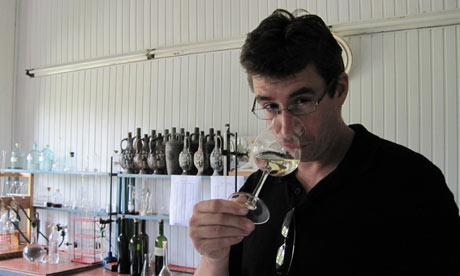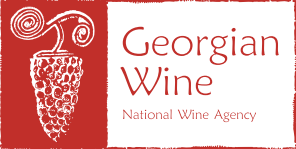- Posted on Sat, 06/13/2009 - 13:42

On the last leg of his Georgian adventure Maxton Walker goes wine tasting in the Alazani valley
Maxton Walker
Heading east from Tbilisi in Georgia quickly takes you directly into the Alazani valley, the heart of the country's wine-growing region. On the way, we meet Germans Spang and Horndachter, a pair of middle-aged dudes on a motorbike odyssey from Germany through eastern Europe into Turkey, Georgia, Azerbaijan, Kazakhstan, Russia, Ukraine and back home to Germany; 15,000km in six weeks.
"In Kazbegi [in the Caucasus] we had very bad roads," says Horndachter, showing me a photo on his camera of a rough, pitted track, and, he admits, like us, they have been plagued by cows, sheep and dogs on the roads.
"But people in Georgia are really friendly," he adds. "They find our motorbikes really interesting." How about the language barrier? It's not been a problem. "We usually find people who can speak a little German."
We stop for lunch in Signagi, a town whose existence is the only real tourist-industry misfire I see in my trip. It has been so heavily refurbished - from its cobbled streets to house fronts and roofs - that it feels like a bad film set. Apparently, the Georgian authorities have decided to turn the town into a tourist hub. "They want to make it the Las Vegas of Georgia," says Nina. "They want people to come here to get married." But the views from our restaurant are stunning; across the valley dotted with vineyards, the snow-capped Caucasus rising in the far distance.
We head down into the valley. I sampled a lot of Georgian wine over the week and to my untrained palate, it was pretty good - but they have yet to make any inroads into the European market. There are signs, though, that this may be changing. At Uplistsikhe, the cave town near Gori, earlier in the week, I bumped into Claudio Samson a French wine expert who this year has started wine tours in Georgia. Why on earth is a Frenchman coming to Georgia for wine? "They've made 50 years' worth of progress in 20 years. Their unique grapes and modern production systems will make their wines world-beaters," he said confidently.
Shumi winery, which has vineyards all over the region and produces some three million bottles a year. It being May, their grape crushing and bottling machinery is lying idle, but Nino, the winery's lab technologist, shows me the enormous vats and barrels and we head to the lab for a wine-tasting. I'm astonished to learn that around 60% of the company's output went to Russia before the trade embargo stopped them exporting.
"Isn't that a rather big problem?" I ask.
"Yes," she says simply.
Back in Tbilisi on my last night, I can't help wondering about the Georgian authorities' plans to market the country as a "quality destination". This is undoubtedly a world-class tourist destination - but all the travellers from Europe I met during the week (and I didn't come across a single Brit on the road) had a certain adventurous streak; and I wonder if the authorities will really persuade travellers with, say, young families to come all this way for something they may feel they can get in France or Spain for a fraction of the price.
I really loved it all: the people, the food, the wine, the landscape. But I did have a guide and a driver, and, as the German couple at the national park lodge I met earlier in the week discovered, independent travel is still tricky. Will the country hang on to its character if it becomes a mass tourist destination? I can't help but remember a weird but a touching incident during my week on the road outside the spa town of Borjomi. A calf ran out in front of our car and Roma slammed on the brakes. The car behind went straight into the back of us. As we all clambered out to inspect the damage, a priest who just happened to be walking past, came over, offered thanks to God for sparing us ... and then spent a few minutes chatting about cars before everyone shook hands and went amicably on their way.
As my guide Nini says, it's still a strange place. And, as badly as it needs tourists, I hope it stays that way.
© Guardian






